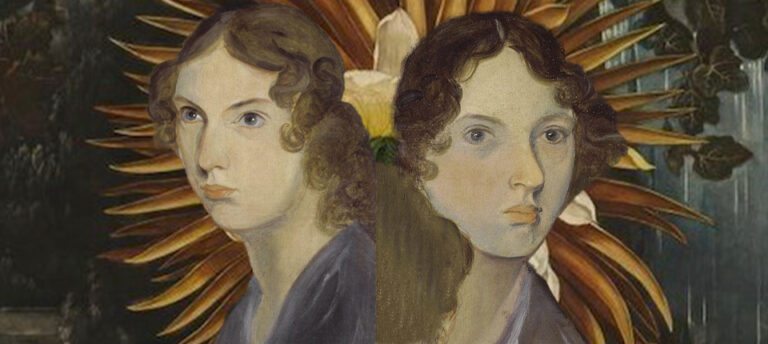Lit Hub Weekly: December 9 – 13, 2024
 TODAY: In 1847, Emily Brontë’s Wuthering Heights and Anne Brontë’s Agnes Grey are published by T. C. Newby in a 3-volume set under the pen names of Ellis and Acton Bell.
TODAY: In 1847, Emily Brontë’s Wuthering Heights and Anne Brontë’s Agnes Grey are published by T. C. Newby in a 3-volume set under the pen names of Ellis and Acton Bell.
- The professionals weigh in: here are the best book covers of the year, according to book cover designers. | Lit Hub Design
- “The stone would outlast everyone, would transcend the memory of those who were there, and those who came after, and would see Topaz and its eventual ruin beyond the end. But eternity came quick.” Brandon Shimoda on saving a Japanese American WWII monument. | Lit Hub History
- “Something will enrage you and something will haunt you. And something will strike you as beautiful and true.” Derek Mong on finding literary inspiration in visual art. | Lit Hub Art
- The enduring political relevance of Walter Benjamin’s “Theses on the Philosophy of History.” | Lit Hub Politics
- There’s no shortcut to publishing a book. | Defector
- “Munro’s relationship with Fremlin enabled her to do her greatest work — indeed, some of the greatest work ever done in the short story form. That so much of that work now reads like an indictment of the relationship is a bitter paradox.” Giles Harvey on Alice Munro’s silence. | The New York Times Magazine
- “Why should I care about alien abduction? I felt that way just being in a car.” Patricia Lockwood on E.M. Forster and The X-Files. | London Review of Books
- “Manufacturing a digestible version of a thinker as demanding as Simone Weil is, on first glance, far from an enviable task.” Jack Hanson on why we should keep Simone Weil’s legacy weird. | The Drift
- “Besides the luxurious hotel, the big draw is, of course, the promise of new insight into one of the most influential, and controversial, modern philosophers.” Tania Roettger reports from this year’s Nietzsche Colloquium. | The Dial
- Would you like to see Karl Ove Knausgaard’s cat (and books)? | The Washington Post
- Ned Blackhawk considers the best books on Native American history published (so far) in the 21st century. | The New Yorker
- Olivia Liang and Jamaica Kincaid discuss the political significance of the garden. | Granta
- Brontez Purnell considers Madonna’s performance in the (triumphant, messy) Desperately Seeking Susan. | LARB
- “I fear death, but I know what mending can be done by puncture, by pain.” Melissa Febos considers her face. | The Yale Review
- Celebrating an underrated Kafka story. | MIT Press Reader
- Rebecca Makkai recommends books that capture the spirit of Chicago. | The New York Times
- “The basic business model relies on the mass appropriation of human-written text, and there simply isn’t anywhere near enough in the public domain.” Alexander Hartley on copyright in the age of ChatGPT. | Boston Review
- “Contemporary Turkish literature would look different if authors wrote soulful books like Atay’s that truly told us how it feels to live in Turkey.” Kaya Genç on Oğuz Atay. | The Point
- Even in blue states, book bans are having chilling effect on the sales of children’s books. | Los Angeles Times
Also on Lit Hub:
Check out the best (old) books we read this year • On editing and translating Hannah Arendt’s long-lost poems • Merve Emre on Texas: The Great Theft and the literary nature of gossip • Tobias Carroll on China Mieville and when speculative fiction starts to feel like fact • On the ways female doctors fought against 19th-century medical misogyny • Orlando Reade on privilege, freedom and the importance of reading disobediently • Exploring the science behind the more unsavory aspects of our personalities • Sara B. Franklin on reading children’s lit in troubled times • A generational legacy of craftsmanship in Scotland • • On the racist roots of a moral panic • A statement to the Modern Language Association about the BDS movement • Nathan Deuel wonders what we really need from our literary heroes • On learning to make the world’s rarest pasta • What really tore The Beatles apart? • David S. Cho explores ideas of homeland, belonging and Kim Ronyoung’s Clay Walls • “When The Onion bought Infowars, it wasn’t just poking fun but was rather leveraging the mechanics of capitalism to make a larger point about how misinformation spreads.”